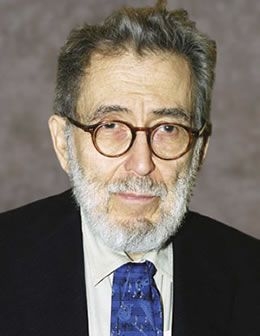On this date in 1925, First Amendment devotee Nat Hentoff was born in Boston to Jewish immigrants from Russia. As a freedom fighter who referred to himself as a “Jewish atheist,” he was characterized by a love for rabble-rousing. His New York Times obituary told the story of how Hentoff, as a 12-year-old, sat on his outside porch on a street leading to the synagogue and ate a salami sandwich on Yom Kippur, the Jewish day of atonement and fasting.
In his 1986 memoir Boston Boy, Hentoff said that he had done so to experience what it was like to be an outcast. He wrote that despite infuriating his father and getting sick, he enjoyed it. (“Nat Hentoff, a Writer, a Jazz Critic and Above All a Provocateur, Dies at 91.” The New York Times, Jan. 7, 2017.)
Hentoff attended Boston Latin, a public school, where he read rapaciously and developed an impassioned ear for jazz musicians. While attending Northeastern University, Hentoff became the editor of a student paper. As a journalist he developed an ardent commitment to uphold the First Amendment. After graduating in 1946 and working for several years at a Boston radio station, Hentoff moved to New York in 1953 and covered jazz music for Down Beat until 1957.
In 1958 he started his longtime job as a writer and columnist for The Village Voice, a counterculture weekly, where he remained as a columnist for 50 years. Hentoff also had a flourishing freelance career, contributing to Esquire, Harper’s, Commonweal, The Reporter and the New York Herald Tribune. He wrote for the New Yorker from 1960 to 1986 and for the Washington Post from 1984 to 2000. Hentoff also lectured at schools and colleges and was part of the faculty at New York University and The New School.
Hentoff wrote over 35 books, including The Collected Essays of A. J. Muste (1966), Black Anti-Semitism and Jewish Racism (1970), Blues for Charles Darwin (1982) and Speaking Freely (1997). His writing expressed his left-wing views on issues focal to civil liberties such as censorship, which he ardently opposed, and education reform. He also produced profiles on political and religious leaders, educators and judges. He held some extremely controversial viewpoints, one of which being his stance against abortion.
Hentoff received several awards, including the National Press Foundation’s award for lifetime achievement for contributions to journalism in 1995. In 2004 he became the first nonmusician to receive the honor of being named one of six Jazz Masters by the National Endowment for the Arts. D. 2017.

